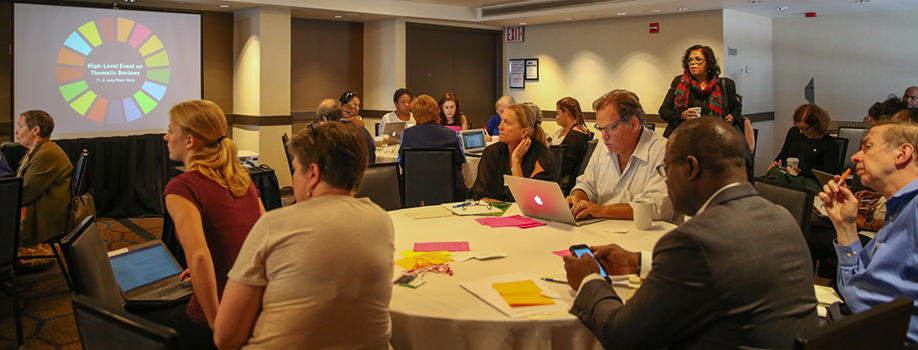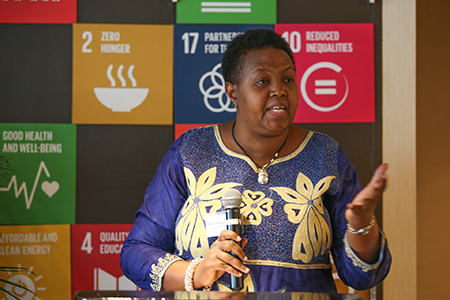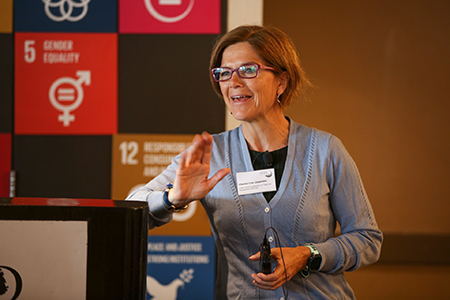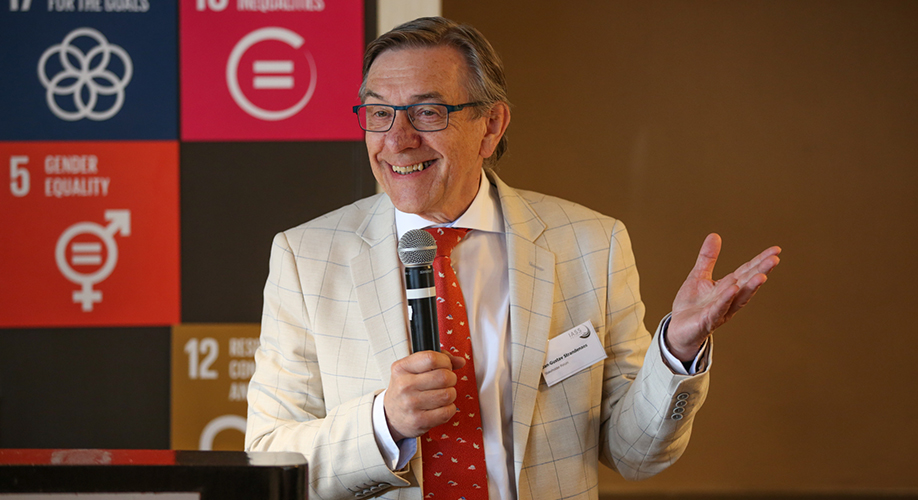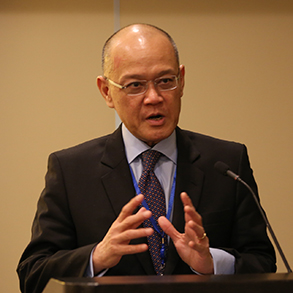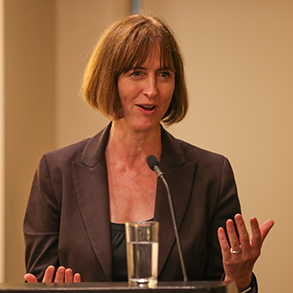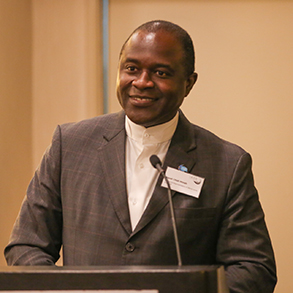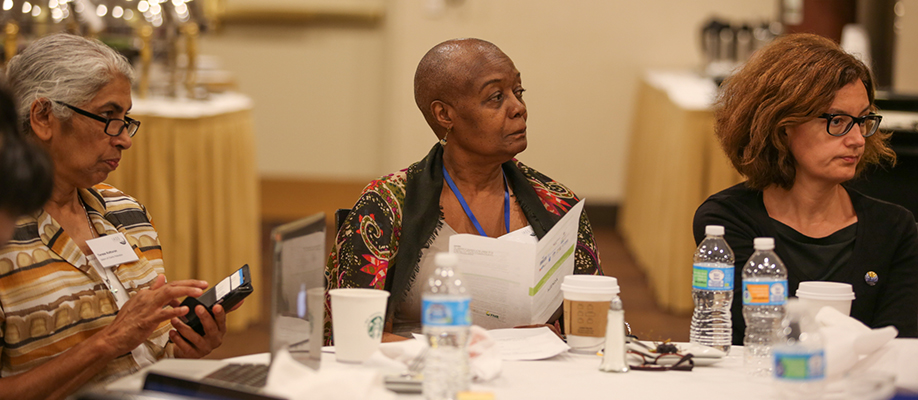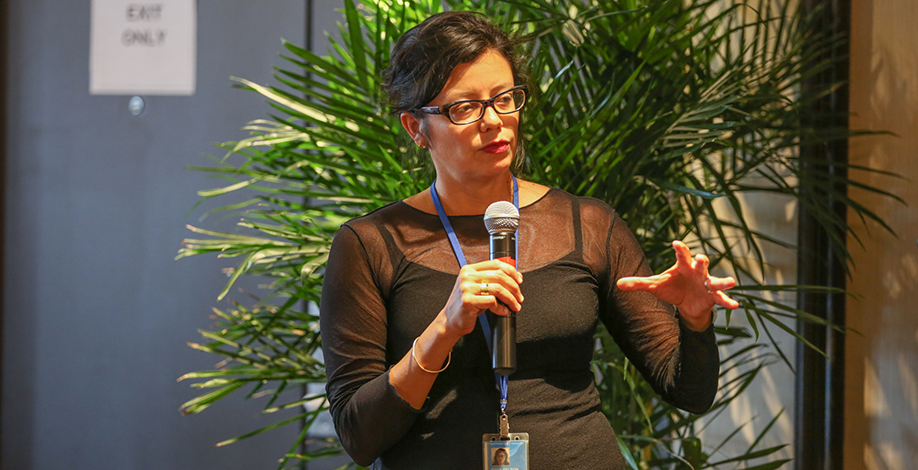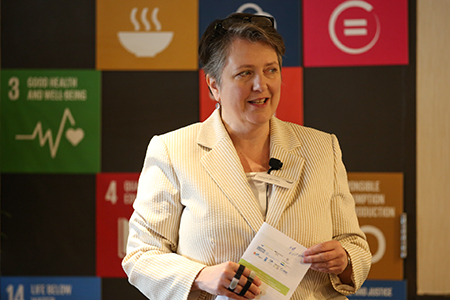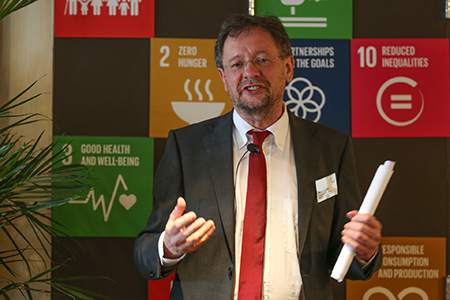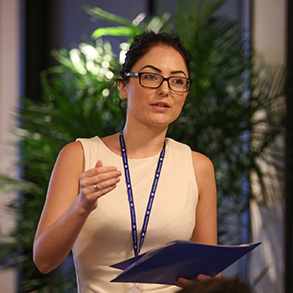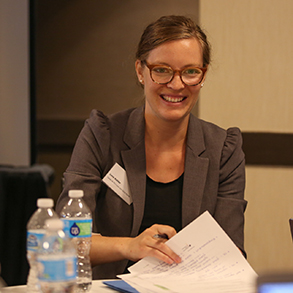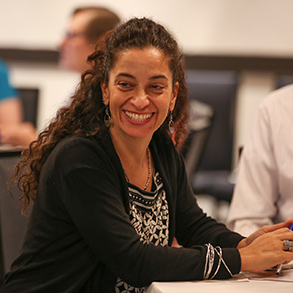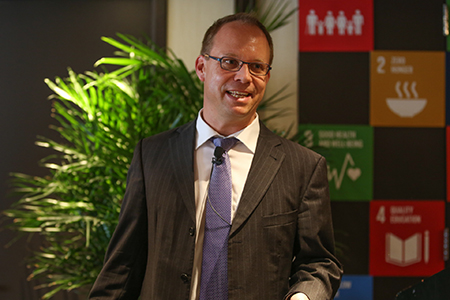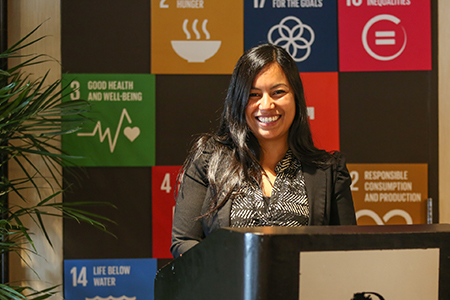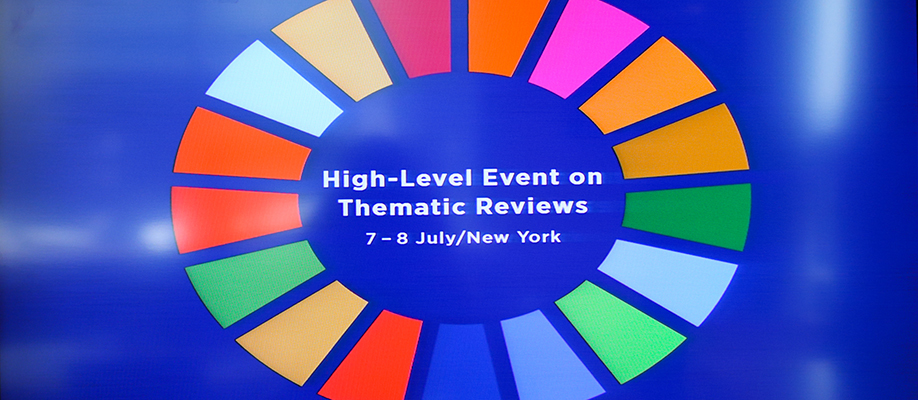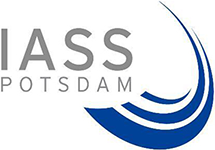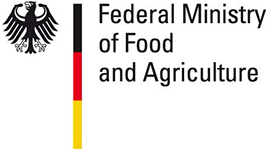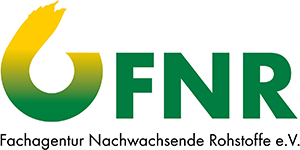| | |
|
![]() On Friday morning, participants discussed concrete actions and recommendations to inform the High-Level Political Forum (HLPF) negotiations. Jes Weigelt, IASS, recalled that thematic reviews are uncharted territory and offer room for input. Ivonne Lobos Alva, IASS, outlined suggested recommendations, including: encouraging member states to support the draft resolution and proposed themes for review in 2017-2019; encouraging the use of informal processes and reports; and encouraging member states to consider adding principles for the inclusion of stakeholders in voluntary national reviews.
On Friday morning, participants discussed concrete actions and recommendations to inform the High-Level Political Forum (HLPF) negotiations. Jes Weigelt, IASS, recalled that thematic reviews are uncharted territory and offer room for input. Ivonne Lobos Alva, IASS, outlined suggested recommendations, including: encouraging member states to support the draft resolution and proposed themes for review in 2017-2019; encouraging the use of informal processes and reports; and encouraging member states to consider adding principles for the inclusion of stakeholders in voluntary national reviews.
In a panel discussion, speakers presented ideas how different organizations and sectors can contribute to thematic reviews, including: the FAO Committee on World Food Security (CFS) serving as a platform to review, discuss and implement integrated policy tools; creating a UN task team to integrate civil society; engaging stakeholders to deepen the scope of issues that might be left out by the general review process; viewing rural communities and civil society as active partners and agents of change; outlining a strategy for HLPF review in 2019; and using thematic reviews to monitor crosscutting issues and informing decisions on nexuses, such as that between food water and energy.
During a luncheon, ambassadors of the permanent missions to the UN of Thailand, Mexico and Sierra Leone, and other speakers exchanged views on, among other issues, innovative approaches needed to address the SDGs in an unprecedented context, how to organize collective learning, how to address national priority setting in an overarching way and how informal processes such as the current event can inform the work of HLPF.
|
|
| IISD Reporting Services, through its ENB+ Meeting Coverage, provided daily digital coverage from the High-Level Event “Towards Thematic Reviews for an Integrated Follow-Up & Review of the 2030 Agenda.” In addition, IISD Reporting Services has produced a summary report, which is available in HTML and PDF format.
Photos by IISD/ENB | Kiara Worth
For photo reprint permissions, please follow instructions at our Attribution Regulations for Meeting Photo Usage Page. |
|
|
+ Visit the web coverage for Friday, 8 July 2016 | |
| | |
| | |
|
![]() Participants to the High-level Event Thematic Reviews for an Integrated Follow-Up and Review of the 2030 Agenda discussed “why” and “how” thematic reviews should be conducted under the High-level Political Forum (HLPF). Opening the meeting, the Permanent Representatives to the UN of Colombia, Germany and Sierra Leone reported on experiences and challenges in starting Sustainable Development Goals (SDG) implementation in their countries.
In a panel discussion on why thematic reviews should be conducted, speakers stressed, among other issues, that they can: strengthen the understanding of synergies and trade-offs among SDGs; contribute to the integrated implementation of the 2030 Agenda; support countries in ensuring that the Agenda’s principles and ambitions are achieved; and provide complementary information to global indicators and statistics. Speakers also underlined the role of national parliaments and sustainability councils in the process and that the clusters for thematic reviews can be a lens through which countries can reflect on their goals and targets.
Participants to the High-level Event Thematic Reviews for an Integrated Follow-Up and Review of the 2030 Agenda discussed “why” and “how” thematic reviews should be conducted under the High-level Political Forum (HLPF). Opening the meeting, the Permanent Representatives to the UN of Colombia, Germany and Sierra Leone reported on experiences and challenges in starting Sustainable Development Goals (SDG) implementation in their countries.
In a panel discussion on why thematic reviews should be conducted, speakers stressed, among other issues, that they can: strengthen the understanding of synergies and trade-offs among SDGs; contribute to the integrated implementation of the 2030 Agenda; support countries in ensuring that the Agenda’s principles and ambitions are achieved; and provide complementary information to global indicators and statistics. Speakers also underlined the role of national parliaments and sustainability councils in the process and that the clusters for thematic reviews can be a lens through which countries can reflect on their goals and targets.
In the afternoon, participants met in three working groups. The first group discussed ways to reduce complexity and ensure integration, including challenges for data integration from local to global levels and the need to better link informal reporting to the HLPF. The second group discussed links to the HLPF process, highlighting that the UN currently has the right institutional architecture to support stakeholder participation, but it needs strong leadership from all stakeholders at all levels. The third group considered accountability and empowerment, noting that thematic reviews should report quantitatively and qualitatively, and be designed as learning process for all stakeholders.
|
|
|
+ Visit the web coverage for Thursday, 7 July 2016 | |
| | |




